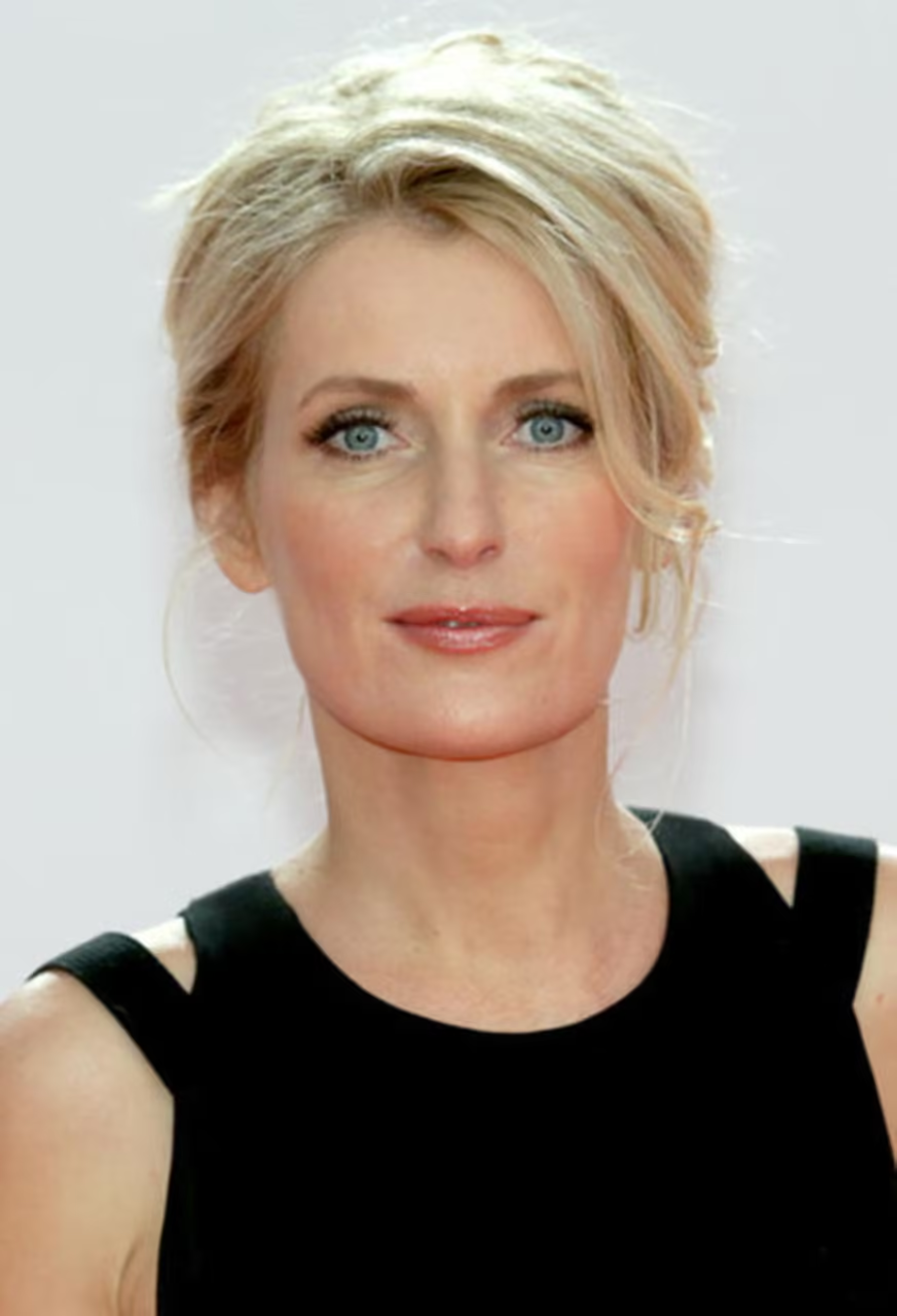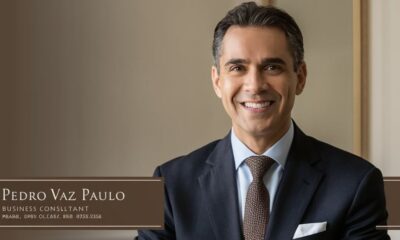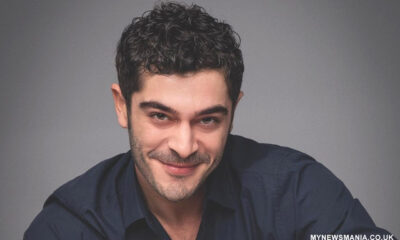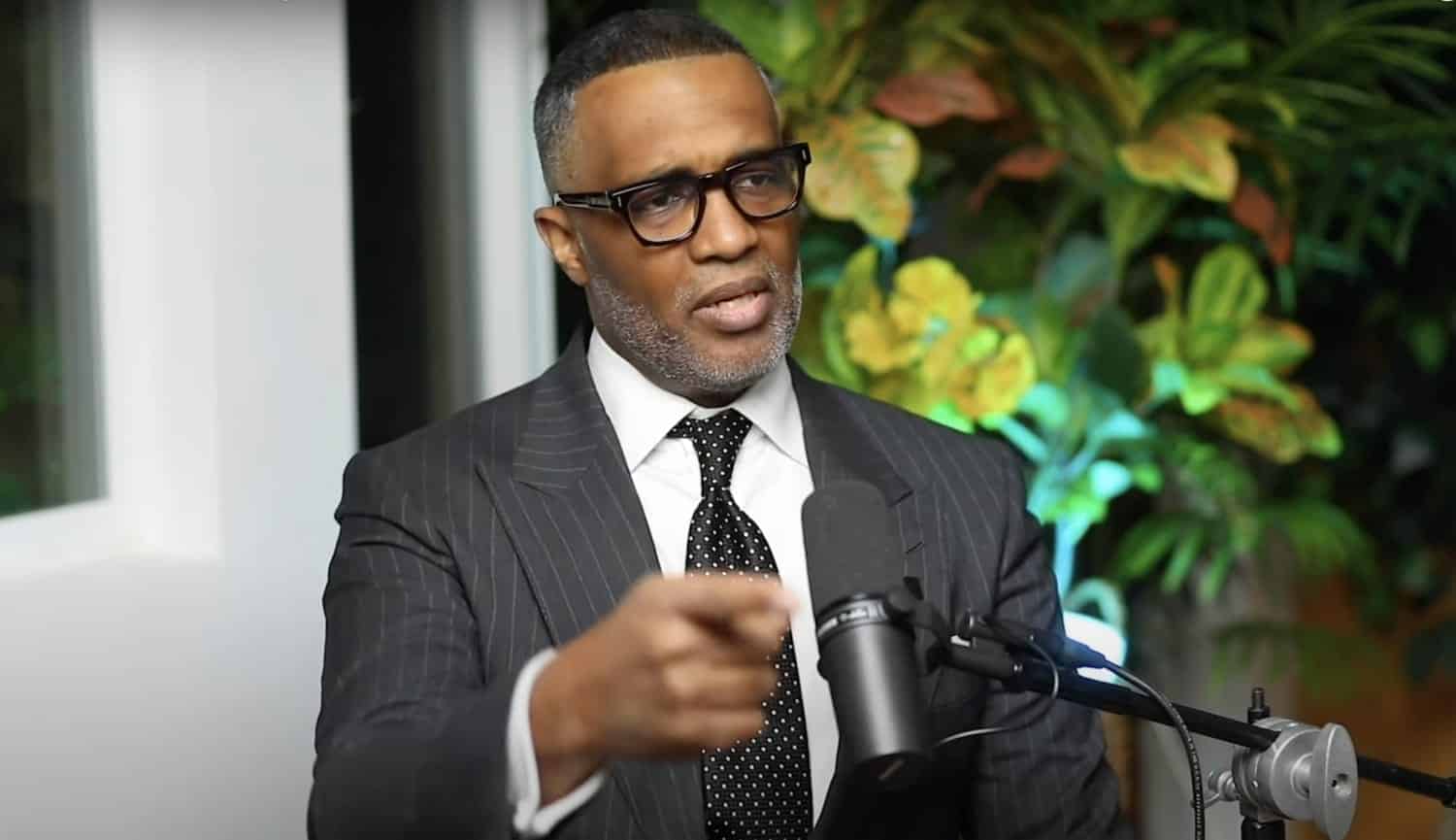Celebrity
Maria Furtwängler: A Multifaceted Career in Acting and Advocacy

Celebrity
Kevin Samuels Net Worth: A Comprehensive Look at His Wealth
Celebrity
Bobbi Althoff Net Worth: How She Rose to Fame and Built Her Fortune
Celebrity
Taelyn Dobson: The Life and Family of the Little-Known Carter Sister

Taelyn Dobson may not be as well known as her famous half-brothers Nick and Aaron Carter, but she’s still an interesting character. As the half-sister of two pop stars, Taelyn has attracted a lot of attention. In this article, you’ll learn more about Taelyn Dobson, her connection to the Carter family, and her role in this famous family. We’ll also take a look at some little-known facts about her life and why she stays out of the spotlight.
Who is Taelyn Dobson?
Taelyn Dobson is best known as the half-sister of Nick and Aaron Carter. Nick Carter is the lead singer of the famous boy band Backstreet Boys, and Aaron Carter rose to fame as a teen pop star. Taelyn came into the family when her mother Ginger Elrod married Robert Gene Carter – Nick and Aaron’s father. Through this marriage, Taelyn became a part of the Carter family.
Unlike her famous brothers, Taelyn lives a very private life. She avoids the spotlight and rarely appears in public.
The role of Taelyn in the Carter family
The Carter family has been famous for years, mainly because of Nick and Aaron. The family’s history has often been in the headlines, be it for successes or problems. Taelyn has always played a supportive role. While her brothers pursued careers in the spotlight, she preferred to protect her privacy and stay away from the public eye.
Taelyn grew up with her siblings Nick, Aaron, Bobbie Jean, Leslie (who passed away in 2012) and Angel. She is an important support for the family and helps keep it together, especially during difficult times.
Childhood and early life
Taelyn’s childhood was a mix of normal family life and the world of fame that was shaped by her brothers. Nick rose to fame in the 1990s with the Backstreet Boys, and Aaron started his music career at a young age. Despite the hype surrounding her brothers, Taelyn kept her own life in the background.
While Nick and Aaron were often the center of attention, Taelyn focused on her own interests and stayed out of the public eye. This helped her live a calmer life, even when things got hectic around her.
Family Relationships: Taelyn’s Bond with Her Siblings
The Carter family has often faced difficult times. Taelyn has always supported her siblings, especially during crises. When her sister Leslie passed away in 2012, Taelyn helped the family cope with the loss. Even when Aaron Carter struggled with health issues and addictions, Taelyn was a strong support – even if she never spoke publicly.
Nick Carter often talks about the importance of family. Although he doesn’t talk much about Taelyn in interviews, it’s obvious that family plays an important role in his life. Taelyn is considered the person who always has the Carter siblings’ backs.
Why does Taelyn Dobson stay out of the public eye?
Taelyn made a conscious decision not to pursue a career in show business. This allowed her to maintain her privacy and avoid the challenges that come with fame. She doesn’t appear on social media or give interviews – and that’s exactly what makes her so mysterious.
Perhaps Taelyn learned from her brothers’ experiences that life in the spotlight also comes with a lot of pressure, and she wanted to live a life that she could control, without the expectations and stress that fame brings.
Taelyn’s influence on the Carter family
Even though she stays in the background, Taelyn Dobson has a huge influence on her family. In a family that is often in the public eye, it is important to have someone who offers calm and support. That is exactly what Taelyn does – she is there for her family, through good times and bad.
Nick and Aaron both struggle with the challenges of fame, and in this situation, Taelyn has helped the family by giving them a sense of normalcy and acting as a calm support system.
Little-known facts about Taelyn Dobson
- Supportive Sister: Taelyn is always there for her siblings, especially in difficult times. Her silent support gives strength to the family.
- Private life: She avoids the limelight and prefers to keep her life private.
- Family-oriented: Taelyn is very family-oriented and places a lot of value on her relationships with her siblings.
- Far from the public eye: Although she is part of a famous family, there are hardly any public appearances or information about her.
The Legacy of the Carter Family and Taelyn’s Position
The Carter family is known for its success in the music business, but also for many public struggles. Nick Carter became world famous as part of the Backstreet Boys, and Aaron Carter enjoyed success as a teen star. But fame also brings problems, such as financial difficulties and personal crises.
In this environment, Taelyn is different. She consciously chose to live a life away from the spotlight. This allowed her to avoid many of the problems her siblings had to deal with and live a life that was just hers.
How is Taelyn different from her siblings?
Nick and Aaron Carter have pursued careers in show business and have been in the headlines time and again. Taelyn, on the other hand, has never sought fame. She lives her life away from cameras and social media, thus staying away from the controversies that often come with fame.
Nick has had both positive and negative experiences in the spotlight, and Aaron has struggled with many personal challenges. Taelyn is a rock for her siblings and shows that you can live a quiet life even in a famous family.
Taelyn’s life today
There is little information about what Taelyn Dobson is doing today. She continues to live a very private life, having no public social media profiles and not appearing in public. This decision has allowed her to live a life on her own terms, away from the celebrity culture that surrounds the rest of her family.
Conclusion: Taelyn Dobson – A quiet life in a famous family
Taelyn Dobson may not be a household name, but as part of the Carter family, she has an important role. While her brothers Nick and Aaron sought the spotlight, Taelyn chose to live a private life and stay out of the entertainment industry. Her quiet support for her family makes her an important, if little-known, figure in the Carters’ story.
-

 News5 months ago
News5 months agoBrooke Tilli – Bio, Age, Relationships, Career, Net Worth, and Boyfriend
-

 Celebrity4 months ago
Celebrity4 months agoPedro Vaz Paulo: A Life of Redemption
-

 Celebrity4 months ago
Celebrity4 months agoBurak Deniz: The Turkish Heart-Throb
-

 Tech5 months ago
Tech5 months agoCloud Computing: Enabling IT Innovation
-

 News5 months ago
News5 months agoDefine a Offshore Accident Lawyer
-

 Tech4 months ago
Tech4 months agoSaaS Integration: Cloud-Based Software
-

 Business4 months ago
Business4 months agoJanitor AI: Future of Auto Maintenance
-

 News5 months ago
News5 months agoAI Deepfake Threaten to Global Elections. No One Can Stop Them.






